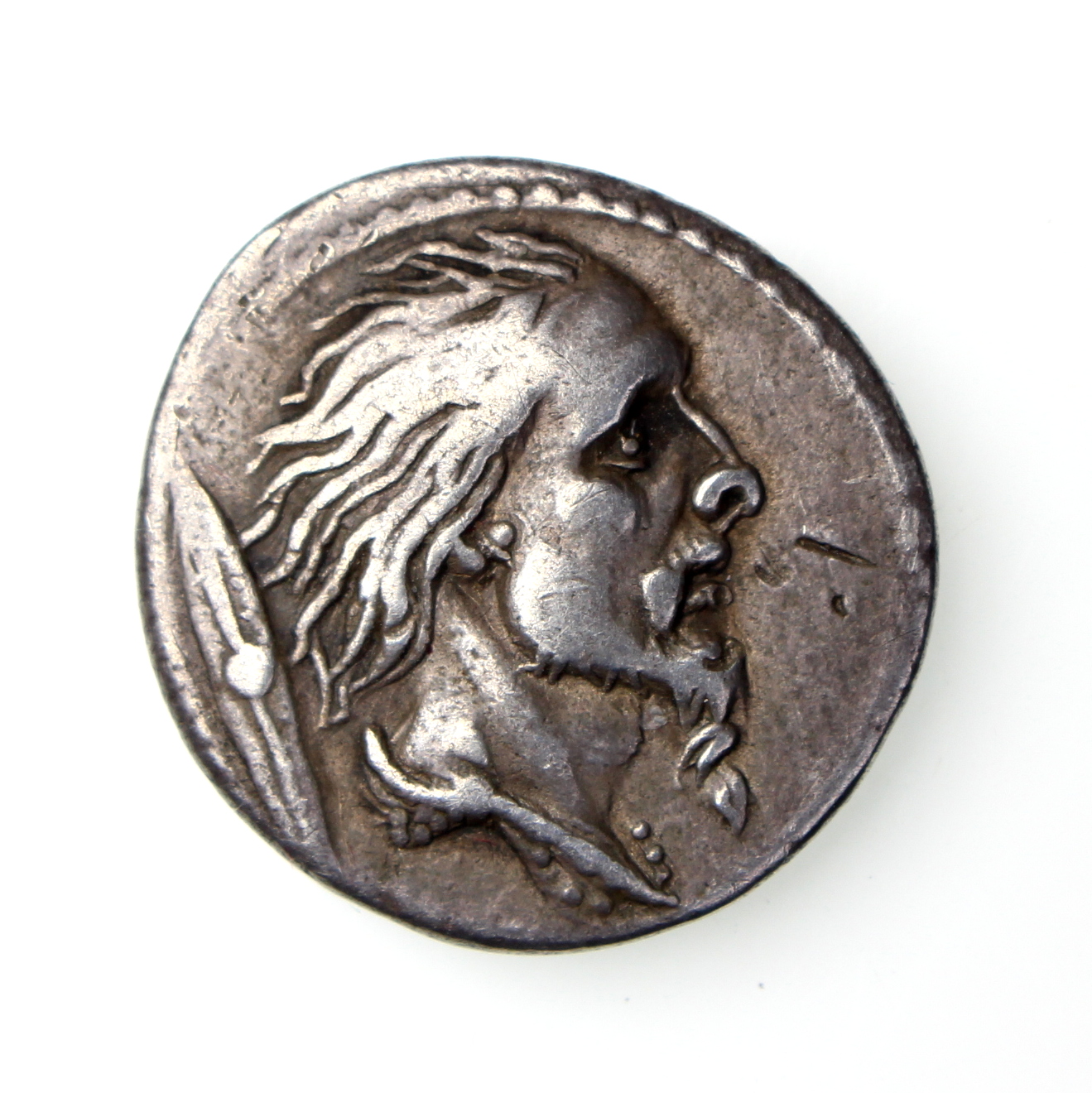English[edit]
- Denarius meaning: 1. A silver coin from the ancient Roman empire: 2. A silver coin from the ancient Roman empire:.
- Denarius definition is - a small silver coin of ancient Rome. Recent Examples on the Web Its production was also a proxy for a central economic activity, the use of silver in the Romans’ standard silver coin, the denarius.
 Wikipedia
Wikipedia The denarius was worth four sesterces throughout the Republic. While the denarius circulated far more widely, the sesterce was the more common unit of accounting. At the time of the Third Servile War, a private legionary was paid approximately 40 denarii three times a year (minus deductions for food and other expenses), although the stated. Denarius definition: 1. A silver coin from the ancient Roman empire: 2. A silver coin from the ancient Roman empire:. Denarius is a decentralized cryptocurrency blockchain.“D” represents the currency of the Denarius blockchain network. The Denarius genesis block was created on June 14th 2017.Its source code is deeply modified and developed based off the also open source software called Bitcoin. With Denarius you can stake your D for a 6% APR yield and you can also run a FortunaStake for a 33% return of.
Etymology[edit]
Borrowed from Latindēnārius. Doublet of dinar.
Pronunciation[edit]
- (UK)IPA(key): /dɪˈnɑːɹɪəs/
Noun[edit]

denarius (pluraldenariiordenariuses)
- (Ancient Rome) A small silvercoin issued both during the Roman Republic and during the Roman Empire, equal to 10 asses or 4 sesterces.
- 1966, James Workman, The Mad Emperor, Melbourne, Sydney: Scripts, page 146:
- 'Sorry, I thought you were Aurel. He owes me a denarius. Have you seen him?'
Usage notes[edit]
- The usual plural is denarii, but denariuses is also well attested.

Translations[edit]
|
|
Anagrams[edit]

- Eridanus, unraised
Latin[edit]
Etymology[edit]
From dēnī(“ten each”) + -ārius.
Pronunciation[edit]
- (Classical)IPA(key): /deːˈnaː.ri.us/, [d̪eːˈnaː.ɾi.ʊs̠]
- (Ecclesiastical)IPA(key): /deˈna.ri.us/, [d̪ɛˈnaː.ri.us]
Adjective[edit]
.jpg)
dēnārius (femininedēnāria, neuterdēnārium); first/second-declension adjective
- Containing or consisting of ten things
Declension[edit]
First/second-declension adjective.
| Number | Singular | Plural | ||||
|---|---|---|---|---|---|---|
| Case / Gender | Masculine | Feminine | Neuter | Masculine | Feminine | Neuter |
| Nominative | dēnārius | dēnāria | dēnārium | dēnāriī | dēnāriae | dēnāria |
| Genitive | dēnāriī | dēnāriae | dēnāriī | dēnāriōrum | dēnāriārum | dēnāriōrum |
| Dative | dēnāriō | dēnāriō | dēnāriīs | |||
| Accusative | dēnārium | dēnāriam | dēnārium | dēnāriōs | dēnāriās | dēnāria |
| Ablative | dēnāriō | dēnāriā | dēnāriō | dēnāriīs | ||
| Vocative | dēnārie | dēnāria | dēnārium | dēnāriī | dēnāriae | dēnāria |
Noun[edit]
dēnāriusm (genitivedēnāriīordēnārī); second declension
- denarius(due to a single coin's value of 10 asses each)
Declension[edit]
Second-declension noun.
Denarius Worth Today
| Case | Singular | Plural |
|---|---|---|
| Nominative | dēnārius | dēnāriī |
| Genitive | dēnāriī dēnārī1 | dēnāriōrum |
| Dative | dēnāriō | dēnāriīs |
| Accusative | dēnārium | dēnāriōs |
| Ablative | dēnāriō | dēnāriīs |
| Vocative | dēnārie | dēnāriī |
1Found in older Latin (until the Augustan Age).
Related terms[edit]
- 𐆖(the symbol for the denarius)
Descendants[edit]
- Arabic: دِينار (dīnār)(borrowing through Syriac and Ancient Greek)
- Ancient Greek: δηνάριον(dēnárion)(borrowing, Koine and later)
- Aragonese: denario(borrowing), dinero
- Asturian: denariu(borrowing), dineru
- Catalan: denari(borrowing), diner
- Corsican: dinaru
- English: denier(through Old French), denar(through a South Slavic language), denary(borrowing through Middle English), dinar(through Arabic), denarius(direct borrowing)
- Esperanto: denaro(borrowing)
- French: dénaire(borrowing), denier
- Friulian: denâr
- Galician: denario(borrowing), diñeiro
- German: Denar(borrowing)
- Italian: denario(borrowing), denaro, danaro, danaio
- Mirandese: denheiro
- Old French: denier
- Old Portuguese: dĩeiro
- Polish: denar(borrowing)
- Portuguese: denário(borrowing), dinheiro
- Romanian: denar(borrowing), dinar(through Greek and South Slavic)
- Romansch: denar, daner
- Slovene: denar(borrowing)
- Sicilian: dinaru
- Spanish: denario(borrowing), dinero
- Venetian: danaro
References[edit]
Value Of A Denarius
- denarius in Charlton T. Lewis and Charles Short (1879) A Latin Dictionary, Oxford: Clarendon Press
- denarius in Charlton T. Lewis (1891) An Elementary Latin Dictionary, New York: Harper & Brothers
- denarius in Charles du Fresne du Cange’s Glossarium Mediæ et Infimæ Latinitatis (augmented edition, 1883–1887)
- denarius in Gaffiot, Félix (1934) Dictionnaire Illustré Latin-Français, Hachette
- Carl Meissner; Henry William Auden (1894) Latin Phrase-Book[1], London: Macmillan and Co.
- corn had gone up to 50 denarii the bushel: ad denariosL in singulos modios annona pervenerat
- corn had gone up to 50 denarii the bushel: ad denariosL in singulos modios annona pervenerat
- denarius in Harry Thurston Peck, editor (1898) Harper's Dictionary of Classical Antiquities, New York: Harper & Brothers
- denarius in William Smith et al., editor (1890) A Dictionary of Greek and Roman Antiquities, London: William Wayte. G. E. Marindin